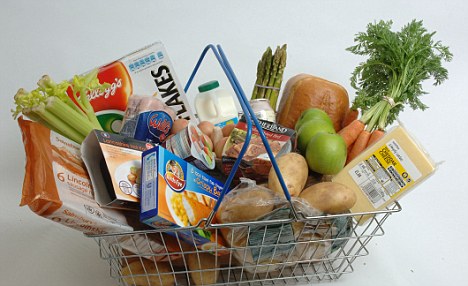The Retail Prices Index (RPI) figures affect business rates liabilities because the Uniform Business Rate (UBR) multipliers are normally increased annually in line with RPI inflation. The September RPI figure is the one that is used to make this adjustment, so business ratepayers will look at this figure with great interest. The figure has been announced today and shows an increase of 0.8%, down from the 1.1% figure announced in August.
The UBR multiplier for 2015/16 is 48.0 pence for small properties and 49.3 pence for large properties in England and in Scotland and 48.2 pence for all properties in Wales. The September 2015 RPI figure sets the maximum increase that the Minister can make at 0.8%. If Ministers in England, Wales and Scotland were to apply this maximum uplift, then these figures can be expected to increase to 48.4 pence for small properties and 49.7 pence for large properties in England and in Scotland, and 48.6 pence in Wales, for the 2016/17 rate year which commences on 1 April 2016.
These estimates will probably not be confirmed until the Chancellor’s Autumn Statement in December. They assume that there would be no change to the Small Business Rate Relief (SBRR) Supplement in England and in Scotland, which is not capped by any RPI uplift. It is worth noting that the SBRR supplement has been increased in every year since 2011 and, if it were to be increased again next year, the multiplier for large properties in England and Scotland could increase to 49.9 pence in England and Scotland.
There has been much criticism recently of the annual RPI increase in the UBR multipliers. The September 2014 RPI increase was 2.3% but the Chancellor took the decision to cap the UBR increase for 2015/16 at 2% and the devolved governments in Scotland and Wales followed suit.
Under the legislation the RPI increase is the maximum increase allowed in the UBR multiplier. In every year since 1990 (when the current system was introduced) up until 2014/15 the Government has increased the tax rate by the maximum amount allowed under the law – that is to say the RPI increase.
It would be no surprise at all to see a further extension of the Small Business Rate Relief scheme included as part of the Autumn Statement announcements. Such an increase could lead to an increase in the SBRR Supplement as we outline above.
In the last two years the UBR increase has been capped at 2% whilst inflation was above that figure. With RPI inflation at a very low level, and CPI inflation hovering around zero, a further year’s capping seems unlikely – especially as there is no election looming this year. What remains to be seen is the impact of the longer-term changes announced by the Chancellor at the Conservative party conference recently and outlined in our news pages.

